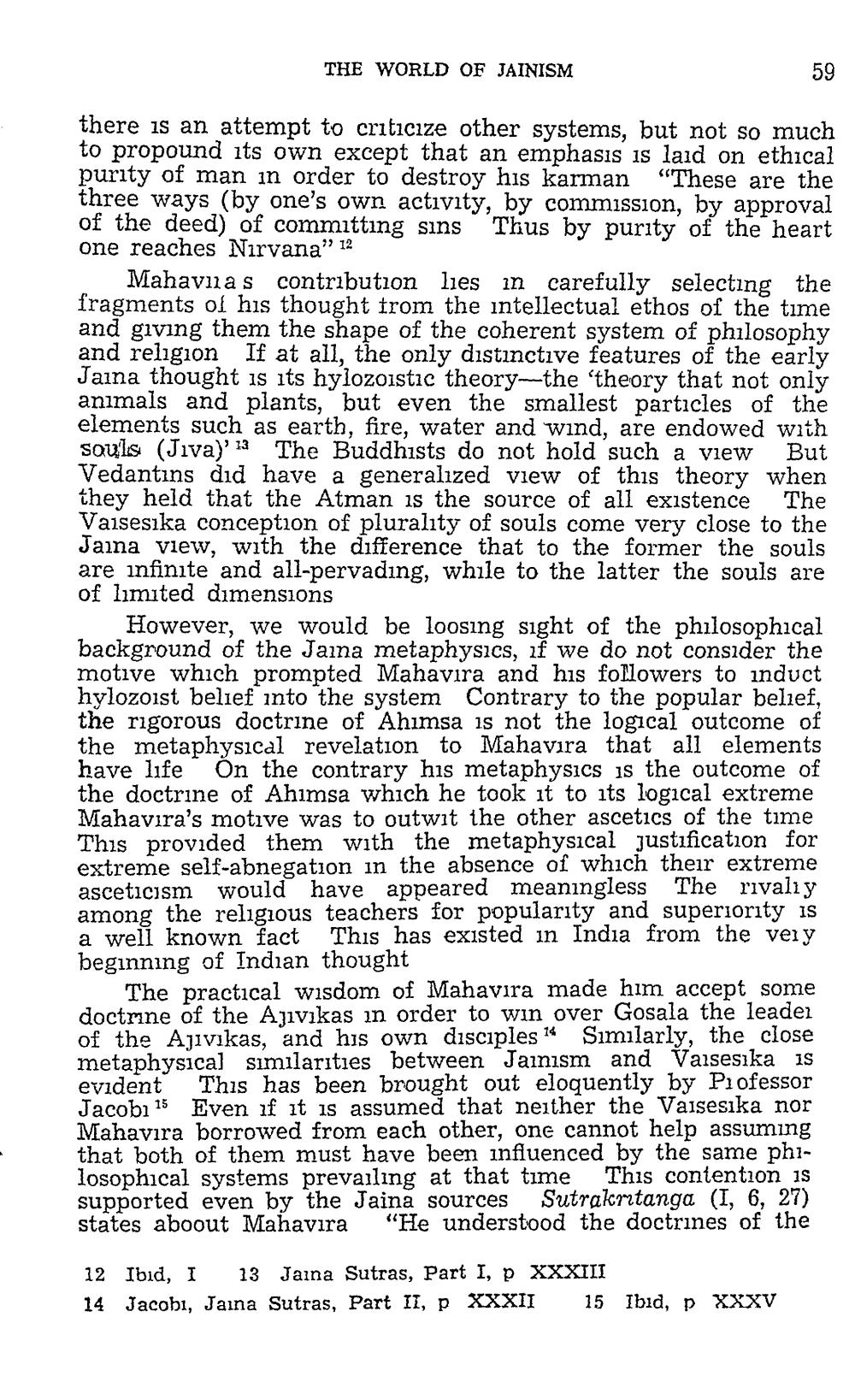________________
THE WORLD OF JAINISM
there is an attempt to criticize other systems, but not so much to propound its own except that an emphasis is laid on ethical purity of man in order to destroy his karman "These are the three ways (by one's own activity, by commission, by approval of the deed) of committing sins Thus by purity of the heart one reaches Nirvana" 12
59
Mahavila s contribution lies in carefully selecting the fragments of his thought from the intellectual ethos of the time and giving them the shape of the coherent system of philosophy and religion If at all, the only distinctive features of the early Jaina thought is its hylozoistic theory-the 'theory that not only animals and plants, but even the smallest particles of the elements such as earth, fire, water and wind, are endowed with souls (Jiva)' 13 The Buddhists do not hold such a view But Vedantins did have a generalized view of this theory when they held that the Atman is the source of all existence The Vaisesika conception of plurality of souls come very close to the Jaina view, with the difference that to the former the souls are infinite and all-pervading, while to the latter the souls are of limited dimensions
However, we would be loosing sight of the philosophical background of the Jaina metaphysics, if we do not consider the motive which prompted Mahavira and his followers to induct hylozoist belief into the system Contrary to the popular belief, the rigorous doctrine of Ahimsa is not the logical outcome of the metaphysical revelation to Mahavira that all elements have life Ön the contrary his metaphysics is the outcome of the doctrine of Ahimsa which he took it to its logical extreme Mahavira's motive was to outwit the other ascetics of the time This provided them with the metaphysical justification for extreme self-abnegation in the absence of which their extreme asceticism would have appeared meaningless The rivaliy among the religious teachers for popularity and superiority is a well known fact This has existed in India from the very beginning of Indian thought
14
The practical wisdom of Mahavira made him accept some doctrine of the Ajivikas in order to win over Gosala the leader of the Ajivikas, and his own disciples Similarly, the close metaphysical similarities between Jainism and Vaisesika is evident This has been brought out eloquently by Professor Jacobi 15 Even if it is assumed that neither the Vaisesıka nor Mahavira borrowed from each other, one cannot help assuming that both of them must have been influenced by the same philosophical systems prevailing at that time This contention is supported even by the Jaina sources Sutrakritanga (I, 6, 27) states aboout Mahavira "He understood the doctrines of the
12 Ibid, I 13 Jaina Sutras, Part I, p XXXIII 14 Jacobi, Jaina Sutras, Part II, p XXXII 15
Ibid, p XXXV




